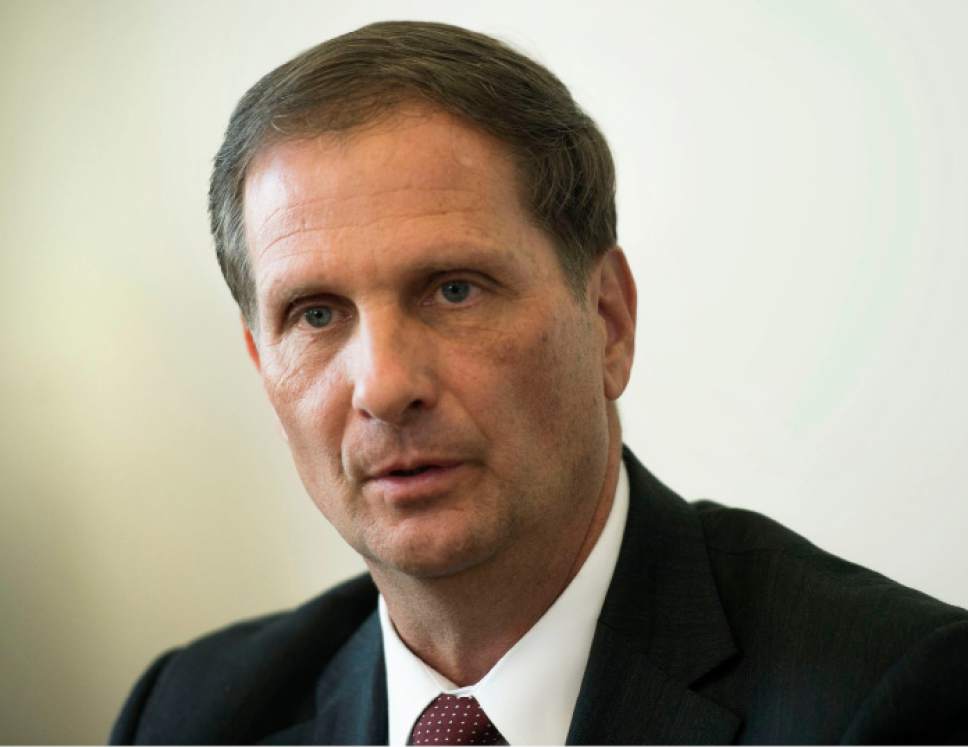This is an archived article that was published on sltrib.com in 2017, and information in the article may be outdated. It is provided only for personal research purposes and may not be reprinted.
The findings of a newly released intelligence report contradict, in part, statements from Utah Rep. Chris Stewart, a member of the House Intelligence Committee, who had said there "just isn't any" indication Russian hackers wanted to boost Donald Trump's chances to win the election. Now the congressman says he may have been misled.
In December, Stewart dismissed as "BS" any news reports suggesting Russia meddled in the election with a clear aim to influence who won or lost. He said instead that the efforts were intended to broadly undermine confidence in the election.
"There just isn't any CIA analysis to draw the conclusion that they wanted Trump to win," he said in the wake of a Washington Post report at the time that intelligence agencies ascribed anti-Hillary Clinton, pro-Trump motives to the hacks.
The CIA, NSA and FBI concluded in the report released Friday that Russian President Vladimir Putin ordered a cyberassault on the election with a "clear preference" for Trump and the aim to discredit Clinton.
"Russia's goals were to undermine public faith in the U.S. democratic process, denigrate Secretary Clinton and harm her electability and potential presidency," it reads.
Stewart, who has been under consideration to become Air Force secretary in Trump's administration, indicated in an email to The Salt Lake Tribune on Friday that he may not have been given all of the available information.
"It is very frustrating and concerning to me that for nearly a month, the administration chose to repeatedly leak information to the press while apparently refusing to tell the members of the House Intelligence Committee the whole story," he said. "I'm even more dismayed that the administration's response to Russia's cyberattacks was too little and too late."
Though he has acknowledged and warned of Russian hacking for some time — noting after a trip to the country in August that "they're trying to meddle in nearly everything we do" — Stewart had adamantly denied any claim that hackers interfered in favor of one candidate.
"How in the world can someone suppose that they think Mr. Trump is going to be better for Russian interests than Secretary Clinton would be?" he previously told The Deseret News.
Stewart, a former U.S. Air Force pilot, had been briefed on intelligence findings in December that initially connected the Russian government with the hacked emails of the Democratic National Committee and others.
At the time, Stewart tweeted: "This narrative that the CIA concluded that the Russians were trying to help Donald Trump just isn't true."
Stewart also said reporters had leapt to an incorrect conclusion based on partisan Democratic sources.
"I told them, 'You're going to have to walk back that story because we're going to seek to declassify this information,' " he said.
The report released Friday was a declassified version of a highly classified assessment, the 25-page document states.
Trump responded to the findings with a tweet Friday: "I am asking the chairs of the House and Senate committees to investigate top secret intelligence shared with NBC prior to me seeing it."
He also issued a statement insisting that any Russian interference in the election that occurred had no effect on its outcome — a conclusion that the intelligence assessment chose not to address.
"The U.S. Intelligence Community is charged with monitoring and assessing the intentions, capabilities and actions of foreign actors" it reads, "It does not analyze U.S. political processes or U.S. public opinion."
Members of Congress from both parties have called for an investigation on Russia's involvement in the election.
Twitter: @CourtneyLTanner



